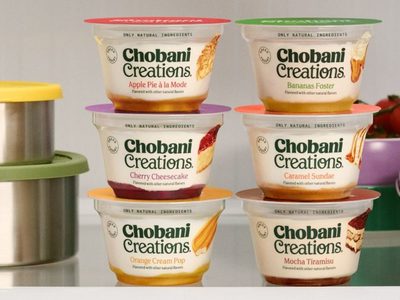Cold pressed refers to a juicing process.
Cold-pressed innovation
Juice processors are learning how to de-commoditize juice through innovative blends and processing. One of the most noteworthy category disruptors is cold-pressed technology.
Cold pressed refers to a juicing process. The more traditional method of extracting liquid from fruits and vegetables is centrifugal juicing. This is where fast-spinning blades expel the juices, as compared to the slow pulverizer with hydraulic press used in cold-pressed technology.
Most of the bottled juice brands driving sales in the category fall into the category of cold pressed, with many of these juices further undergoing high-pressure processing (H.P.P.) to obtain about a 30-day refrigerated shelf life. The H.P.P. technology uses high pressure and no heat to kill potentially harmful microorganisms to ensure a safe and good-tasting product.
Consumer interest in cold-pressed juice is fueled by research showing this type of juicing preserves the integrity of vitamins, minerals and enzymes. This is because the blades encountered in centrifugal juicing generate heat and circulate air, both of which have a deleterious effect on nutrients. With cold-pressed processing, these elements are negligible.
Starbucks plans to introduce organic smoothies in 2018 that combine cold-pressed fruit and vegetable juices with probiotics, coconut milk and other functional ingredients.
Cold-pressed juice trailblazer Evolution Fresh, a business of Starbucks Corp., Seattle, continues to break boundaries with its new product lineup for 2018. The company plans to introduce seven organic smoothies that combine cold-pressed fruit and vegetable juices with probiotics, coconut milk and other functional ingredients.
The new Evolution Fresh Daily Probiotic Smoothies and Complete Smoothies were developed in response to increased consumer interest in gut health and healthy snacking. They enable the brand to expand beyond the super-premium juice segment and into the premium functional beverage category.
“We know a growing number of people are looking for more from their juicgh-pressure processed juice can deliver.”
Adding probiotics to juices is not new, but only in the past few years have consumers realized that not just milk and yogurt may be a carrier of beneficial live and active bacteria. Juice can, too.
So Good So You wellness shots combine cold-pressed, raw vegetables, fruits, spices, specialty ingredients such as blue-green algae, raw honey and apple cider vinegar, and probiotics.
So Good So You, Minneapolis, is entering this space with the launch of new refrigerated, certified organic, non-G.M.O. vegan wellness shots that support digestion and immune health. These 1.7-oz shots come in five flavors and serve up 1 billion vegan probiotic colony forming units.
The new shots are formulated to deliver a dose of immune-boosting ingredients via cold-pressed, raw vegetables, fruits, spices and specialty ingredients such as blue-green algae, raw honey and apple cider vinegar. They are made with the H.P.P. technology to kill harmful bacteria and retain important nutrients and freshness, and are available in formulations targeting immune health, digestion, longevity, detox and endurance.
“We created these shots to deliver the powerful benefits of clean, raw ingredients in one potent dose,” said Rita Katona, founder. “We believe in the natural healing powers of specific veggies, fruits and spices and wanted to give our customers an option to experience the nutrition-packed, restorative benefits of these real food ingredients in a simple and convenient delivery system of shots.”
Carol Stream, Ill.-based Here differentiates its cold-pressed juices by promoting the locally-sourced and produced nature of its beverages. All of Here’s products are produced in small batches 25 miles outside of Chicago, its primary market. The juice labels state “cold pressed in the Midwest with local produce.” Varieties include beet, apple and ginger; cucumber, apple, celery, kale and mint; kale, apple, lemon and wheatgrass; orange, zucchini, spinach, kale and lemon; pineapple, celery, apple, turmeric and basil; and tomato, cucumber, apple, red pepper, carrot and mint.






